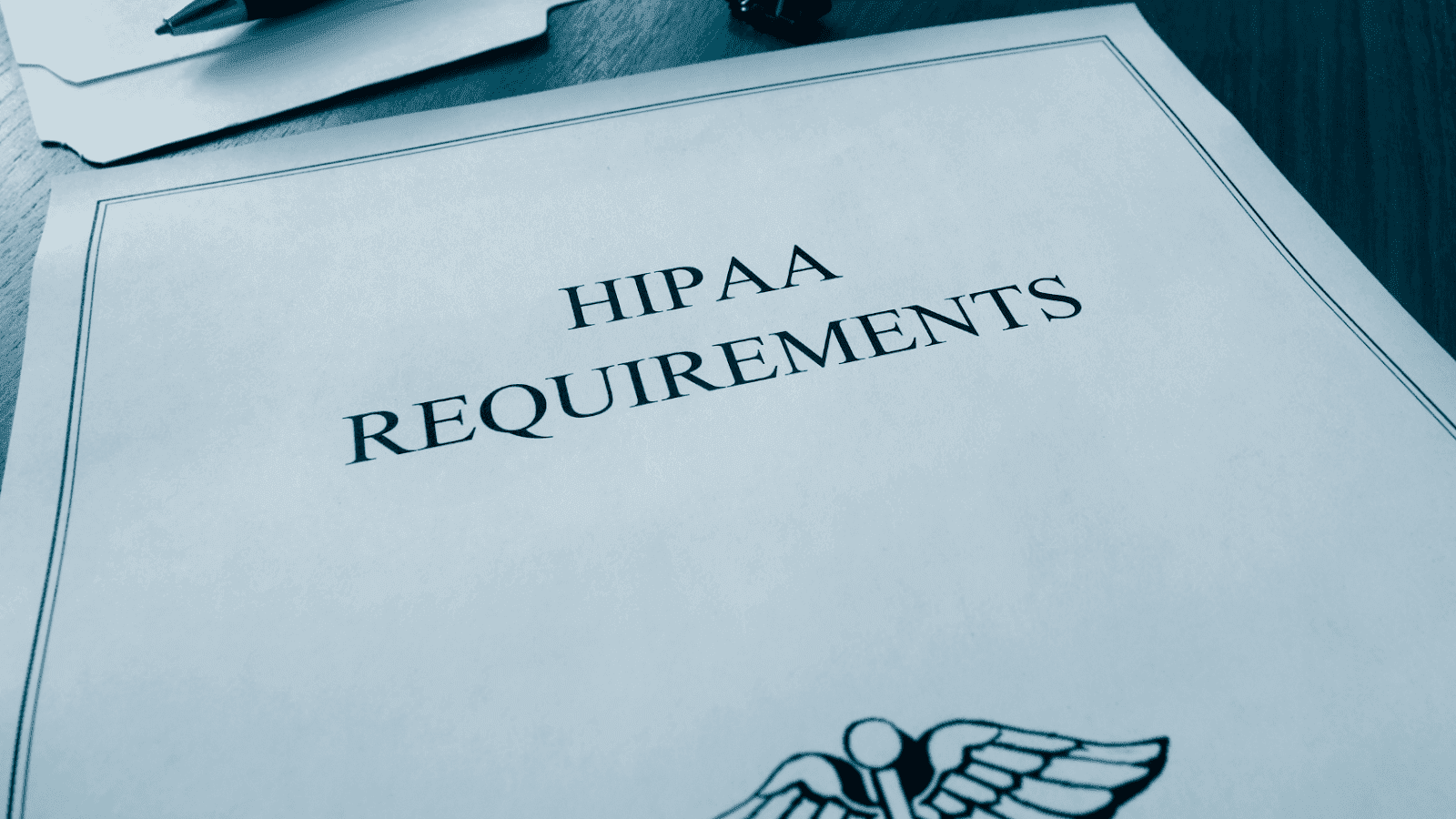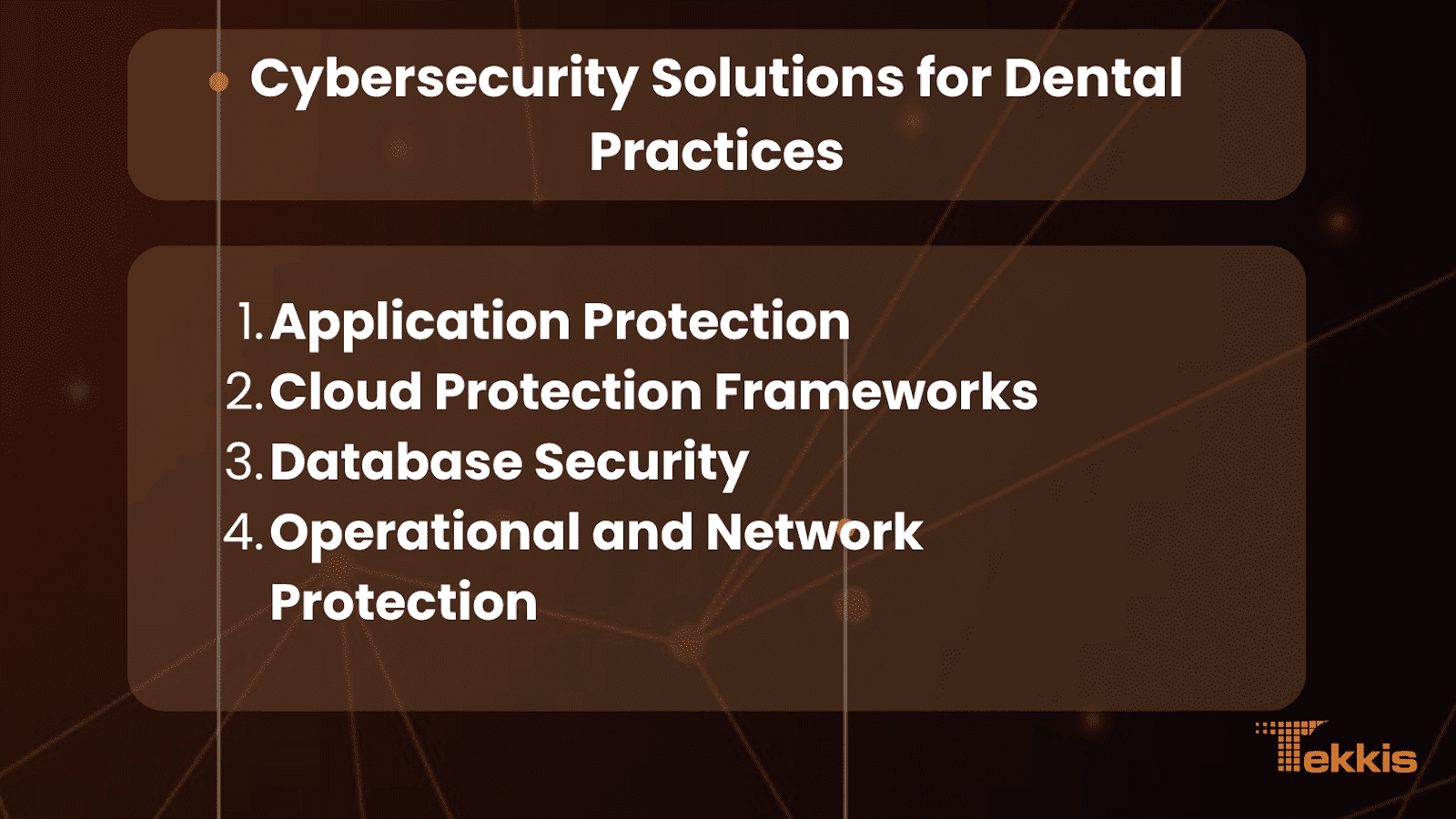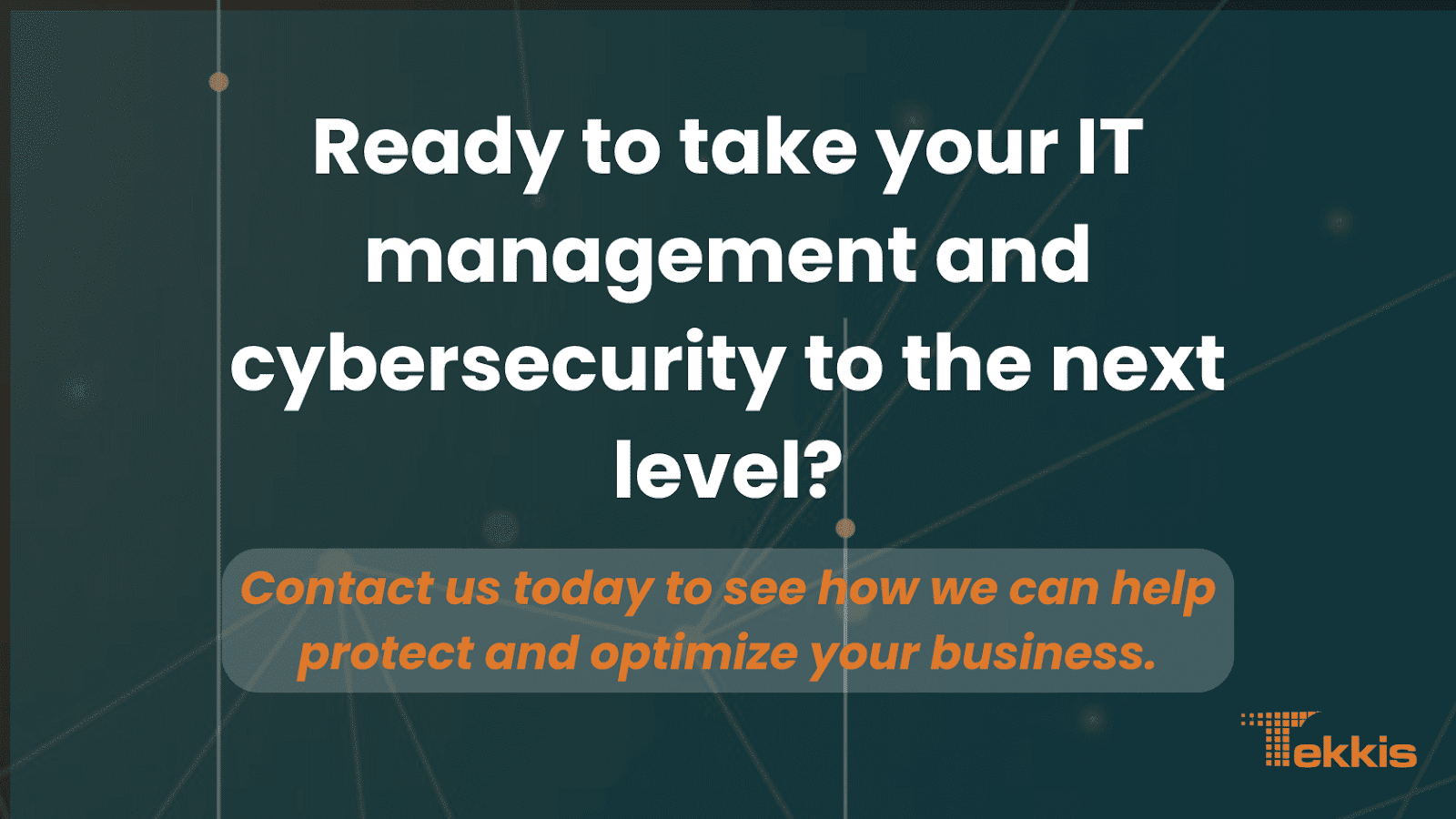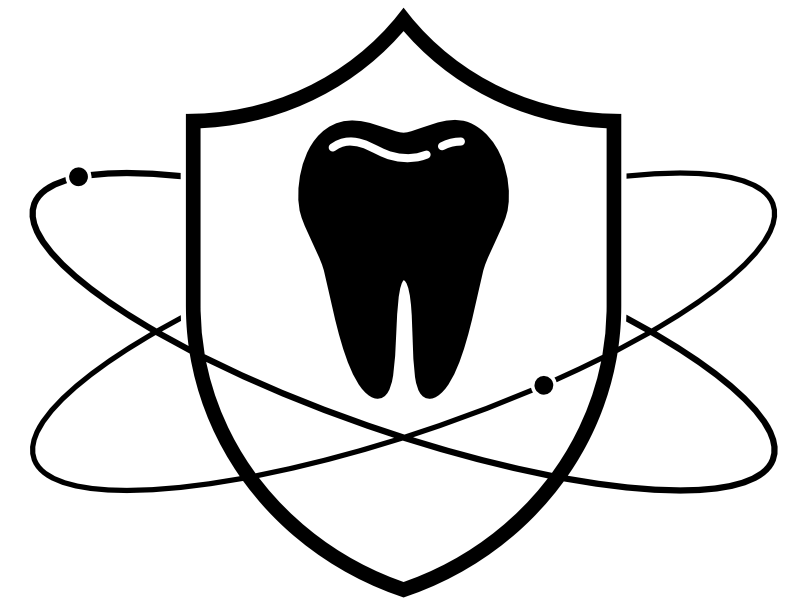Dental practices, like many other medical fields, have transitioned from manual processes to digital and automated systems over the past few decades. A significant aspect of this evolution involves the use of dedicated dental software and the management of patient records. While managing these records might seem straightforward, it can be quite complex.
Adhering to regulations such as HIPAA is crucial, as they emphasize the importance of privacy and security regarding patient data. Consequently, many dental practices are now seeking cybersecurity agencies to help address these needs.
If you haven’t begun your search for a cybersecurity agency, this article will provide six compelling reasons why you should start this process right away. To ensure the highest level of protection for your dental practice, consider partnering with Tekkis Cybersecurity. With their specialized expertise in safeguarding patient data, Tekkis can help you navigate compliance regulations while enhancing your overall security posture. Don’t wait any longer—contact Tekkis Cybersecurity today to fortify your practice against potential threats!

Reason #1: Sensitive Patients' Records
Sensitive patient data is a critical concern for dental practices, as maintaining patient privacy is essential. When healthcare data is compromised, it significantly infringes on that privacy, creating trust issues between patients and their providers.
Dental practices understand the importance of safeguarding this data. Cybercriminals are acutely aware of its value; they know that practices may pay a hefty ransom to retrieve their stolen patient information. In fact, patient records from dental offices can fetch prices exceeding $400 each on the dark web, making them a prime target for cyber attacks.
Dental practices must implement strong cybersecurity measures, including encryption and data security protocols, to protect patient information effectively. If you need guidance on how to encrypt your medical data, consider a free consultation with one of our experts.
Why Should Dental Practices Protect Sensitive Patient Data?
In addition to the reasons mentioned above for hackers exploiting patient data, there is another critical reason to protect patient data. For dental practices, a large portion of patient data involves children's health records.
The health records of minors require an extra degree of protection. If these records are exposed to hackers, the dental practice will have to answer to the guardians of the children.
It can lead to significant distress for the dental practice and a major loss of business.

Reason #2 HIPAA Compliant and Penalties
Most healthcare facilities, including dental clinics, know that protecting health records appropriately is a requirement of HIPAA compliance. However, very few of these practices are aware of the penalties for not complying with HIPAA.
A modern, complex, and well-planned cyberattack may penetrate a moderately secured system. However, even a basic cyberattack can easily exploit the database if the dental practice leaves unprotected files.
In the latter case, the blame falls on the practice due to negligence in protecting the patient data. Fortunately, Tekkis can help you become HIPAA compliant in a day.
What is the Penalty for HIPAA Violation?
The fines for a HIPAA violation are divided into four tiers. The tier in which a healthcare organization falls depends on its role and neglect in the cyberattack. Here are the four tires of HIPAA penalties:
Tier 1: No Neglect, No Blame
Tier 1 penalty applies when the healthcare agency couldn't have done anything about the data breach and did not know about the breach. In this Tier, the penalty can range from $100 to $50,000.
Tier 2: Possible knowledge, No Wilful Neglect
Tier 2 penalty applies when the organization knew of the breach or could have found out about it if they had taken proper actions. However, the organization did not show willful neglect. In this tier, the penalty can range from $1000 to $50,000.
Tier 3: Willful Neglect, Timely Recovery
Tier 3 penalty applies to organizations where the breach occurred due to wilful neglect of the organization. However, the breach was discovered and corrected within 30 days of the incident. The penalty in this tier can range from $10,000 to $50,000.
Tier 4: Willful Neglect, No Timely Recovery
Tier 4 penalty applies when an organization not only showed willful neglect but also failed to correct the breach within an understandable time frame. The penalty in this tier can range from $50,000 to $1.5 million.
As you can notice, the penalties can be staggering if you, as a healthcare executive, fail to take action to protect sensitive data.
Reason #3: Unsecured Dental Software
Every dental practice depends on a lot of software applications. Some of these are important to run the dental equipment. Others serve the role of managing patients, arranging appointments, or handling staff and the workforce.
While all these software bring the benefit of easing operating and providing new features, they also bring along certain risks. If not carefully configured, any software can be a gateway for hackers to enter your system.
How to Configure Dental Software Safely?
To ensure complete protection, only install dental applications from trusted sources. Once installed, add applications that can safeguard your systems and prevent unauthorized data access.
For this purpose, you need the help of dental cybersecurity experts, such as Tekkis Cybersecurity (Tekkis). Tekkis has decades of expertise in configuring IT systems for dental practices to ensure their optimal operation.
The best part is that dental practice executives can get a free consultation with a Tekkis expert.
Reason #4: Unaware Staff
The untrained staff has been the breaching point for many cyberattacks in dental practices. Of course, the people on your staff don't have to be cybersecurity professionals. However, having a basic understanding of safe digital practices is necessary.
The main reason for unawareness among staff is that the executives lack the time or the knowledge to train the staff personally. The results are often catastrophic for the medical practice and its clients.
For instance, it is common for untrained staff members to reveal important credentials to attackers unknowingly. This occurs through systematic attacks like phishing and is pretty common among cyberattacks on American businesses.
How to Train Your Staff in Healthy Cybersecurity Practices
There are many easy ways to train your staff to learn the basics of cybersecurity. To help you out, we have a detailed guide on staff training for healthy IT practices.
If you feel you don't have the time to follow the steps yourself, contact Tekkis. We can arrange a cybersecurity seminar for your staff at your convenience.
Reason #5: Open Entry Points
In any dental practice, there are a large number of devices connected to the network. Most executives take steps to secure the computers, but many other devices get left out.
It might surprise you that hackers can attack you even from devices like your printers and your smartphones. The fault generally doesn't lie in the device but in the network itself.
Every device on the network is an open entry point for attackers. For optimum defense, your practice needs perimeter defense and end-to-end security. Only cybersecurity professionals like Tekkis can properly implement these security measures.
Reason #6: Outdated Technology
Most executives, including those overseeing dental practices, are unaware that their IT technology is severely outdated. Almost all IT providers, including yours, use security protocols that are decades old.
They are not entirely to blame, as these protocols can work for an average user with nothing to lose in case of a cyberattack. However, the stakes are high for an organization such as yours.
Everything in your dental practice, from the network security protocols to the software patches, needs regular updates.
Choosing to install these updates in a timely fashion can lead to a significant improvement in the current status of your cybersecurity levels.

Cybersecurity Solutions for Dental Practices
Application Protection
Dental practices must implement robust application protection. This includes using secure, up-to-date software and regularly patching vulnerabilities. Application whitelisting can also prevent unauthorized software from running on dental practice systems.
Cloud Protection Frameworks
As more dental practices move to cloud-based solutions, implementing strong cloud protection frameworks becomes essential. This includes using multi-factor authentication, encrypting data in transit and at rest, and regularly auditing cloud access and usage.
Database Security
Securing patient databases is paramount. This involves implementing strong access controls, encrypting sensitive data, and regularly backing up databases to secure, off-site locations. Regular security audits of database systems can help identify and address potential vulnerabilities.
Operational and Network Protection
Comprehensive operational and network protection strategies are vital. This includes implementing firewalls, intrusion detection systems, and regular network monitoring. Segmenting networks can also help contain potential breaches and limit their impact.
Managed IT Services for Dental Offices
Benefits of Outsourcing IT Management
Outsourcing IT management to specialized providers can offer numerous benefits to dental practices. These include access to expertise, 24/7 monitoring and support, and the ability to focus on core dental services while leaving IT security to professionals.
Choosing the Right Managed Service Provider
When selecting a managed service provider, dental practices should look for providers with experience in healthcare IT, HIPAA compliance, and a track record of successfully managing dental practice IT systems.
Upgrading Dental Practice Technology
Implementing VoIP Phone Systems
VoIP phone systems can offer improved communication capabilities and cost savings for dental practices. However, it's crucial to implement these systems securely to prevent potential vulnerabilities.
Adopting Cloud-based Dental Software
Cloud-based dental software can offer improved accessibility and scalability. When adopting these solutions, practices must ensure they meet HIPAA compliance requirements and implement strong security measures.

Enhancing Email Security in Dental Practices
Implementing Email Encryption
Email encryption is crucial for protecting sensitive patient information transmitted via email. Dental practices should implement end-to-end encryption for all emails containing protected health information.
Training Staff on Email Best Practices
Regular training on email security best practices is essential. This includes recognizing phishing attempts, properly handling sensitive information, and using secure communication channels for patient information.
Conducting Regular Security Audits
Importance of Vulnerability Assessments
Regular vulnerability assessments help identify potential weaknesses in a dental practice's IT infrastructure. These assessments should cover all systems, including dental software, networking equipment, and employee workstations.
Scheduling Periodic IT Health Checks
Periodic IT health checks can help ensure that all systems are functioning optimally and securely. These checks should include reviewing system logs, updating software, and verifying the effectiveness of security measures.

Conclusion
The need for strong cybersecurity measures for dental practices has been highlighted by recent events. Over 100 dental offices in Colorado were impacted by a ransomware attack on their IT provider, Complete Technology Solutions (CTS). This attack, which involved the "Sodinokibi" or "rEvil" strain, began on November 25 and continued to affect clients for more than two weeks. This incident serves as a stark reminder of how vulnerable dental practices are to cyber threats and the potential for significant disruptions.
If you are an executive or administrator at a small to medium-sized dental practice, consider reaching out to Tekkis today to learn how you can protect your network from these threats.



